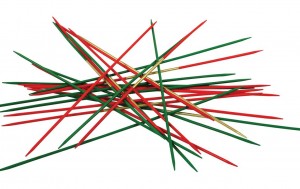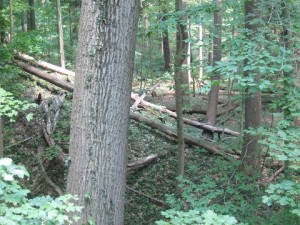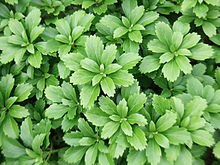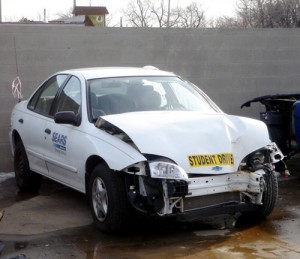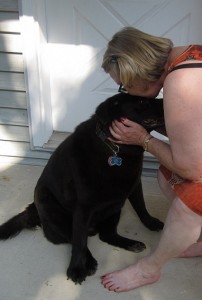Some people think God gets pleasure out of manipulating us, as if we were the sticks in a pick-up game: flick one here, put pressure on another there, and roll someone else away. But that’s a skewed analysis. Of course he could use his power that way if he wanted to, but the Almighty only maneuvers people around if the end result will be their betterment.
As I walk the dog on our route to the beach, one long stretch of road is bordered by forest on both sides, with beautiful views every-which-way. The pavement was laid half way up a giant dune, which leaves a descending valley on one side and an ascending hill on the other.
If a tree goes down in a wind storm, residents prefer to let it be, allowing the natural process of forestation to take over. So after a wild winter, the valley might resemble a game of pick-up sticks being played by a couple of massive storybook giants.
Sixty-foot long trunks lie in a jumble, giving the impression they were tossed there by the hand of God. We look at the disorder and think, “If we could get a crane down there to line up the trunks, and a saw to chop them into 24” lengths, we could stack them in cords and neaten up the valley.”
We’re tempted to think this way about the fall-out from storms in our lives, too. When bad news comes (as it eventually does to us all), life feels as chaotic as the forest floor looks. We think, “God is manipulating me and my life, and now I’m in a mess with huge problems. If only he would straighten it all out… and do it now!”
But maybe we can take a lesson from the forest. After trees have been thrown down by severe winds, their trunks settle on top of each other in pick-up-stick disarray, with no power to change their positions. But as they’re left alone, forest plants begin to slowly grow over them, attractive ground covers like ivy, myrtle, and pachysandra.
The mix of plants, bark, wood, and dirt gradually morphs into rich topsoil to nourish the plants, and when next year’s spring arrives, fallen tree trunks will be dotted with wildflowers. Although the start-to-finish process takes time and begins with the chaos of trees crashing down, the end result is peaceful beauty.
In the same way, if we trust God to work with us through our illnesses, accidents, break-ups, and other problems, when we come to the end of them, he’ll reveal some special gifts we couldn’t have come into any other way.
At the conclusion of a game of pick-up sticks, all we have is one winner. But at the end of our trials, if we stick with the Lord, he is sure to do something spectacular for not just one of us but for every one of us.
“God blesses those who patiently endure testing and temptation. Afterward they will receive…” (James 1:12)

